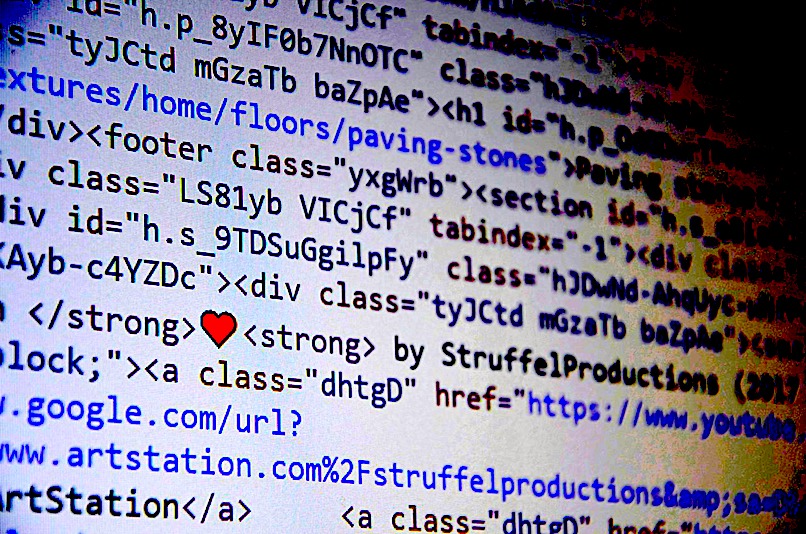 INFRA
INFRA
 INFRA
INFRA
 INFRA
INFRA
“We are drowning in the why, both popular and scholarly, but starving for the how.” — Christopher M. Kelty, Two Bits
Kelty’s exclamation comes after he exhausts the many impacts of the Internet — from email to patents on genes, from transference of traditional knowledge to net neutrality — and concludes that these achievements could only be “understood by looking carefully at the emergence of Free Software.” It’s true: Emphasis is often placed on why these byproducts of the internet manifested, but it’s important to remember how.
This past weekend marked the 20th anniversary of “open source,” a label that replaced the usage of free software but maintained many of its principles. Weeks before this relabeling was agreed upon, Netscape Communications Corp. announced it would make its browser’s source code freely available.
On Feb. 3, 1998, a few weeks after the announcement, a group of leading software developers who included Eric Raymond, Jon Hall, Michael Tiemann, Christine Peterson, Todd Anderson, Larry Augustin and Sam Ockman, met to strategize how they could continue the momentum of the news. At the meeting’s close, the group agreed upon “open source” as the label for the movement.
The open source community today remains very much the same as it did back then. There is no central political affinity, nor anti-position, nor alignment to a specific private or public interest — nor really even a specific group of people to reference. Inherent to the open source community is a value placed on making things public. The technical complexities of these public offerings inherently demand that the participants of the open source community share a fairness and justice in their approach, development and application of these common goods.
At a time when technology is fragmenting our political and social spheres more than ever, it’s especially important to take a moment to recognize the contributors to the open source community and their positive contributions. This community — and the code they’ve built over the past two decades — is the linchpin for so much important social good.
After learning that some of Detroit’s poorest residents were having their water shut off because they were unable to pay their bills, Tiffani Bell, a former Code for America fellow and Oakland resident, launched The Human Utility project in 2014. Bell worked with Kristy Tillman, who volunteered to support in building a platform that identified Detroit residents at risk and matched them with donors who would pay their utility bill. Over the last three years the program has supported nearly 1,000 families.

Jason Warner
Internationally, the open source community is also having a major social impact. In Gaza, Tarek Loubani, an emergency room doctor, launched the Glia project allying software developers and surgeons to design and field-test medical hardware for those in need. The contributors to the Glia project created a stethoscope that can be 3D printed for around $5. In China, where we often read about the restrictions the country places on the internet, tech giants like Huawei, Baidu, Alibaba, and Tencent are steadily contributing more resources towards the open source community. The Apollo Project, which is backed by Baidu, provides an open software platform for a who’s who of partners working to develop their own autonomous driving systems through on-vehicle and hardware platforms.
Ask many long-time software developers in the open source community why they contribute to to open source projects and you’ll likely get a similar response: they care about contributing to the common good and they value the people and connections that are made in the process.
These truths remind me of a eulogy written by Fernando Pérez’s for John Hunter III. Both men are leading contributors to the open source community. In Pérez’s reflection, he shared how he aspires to emulate Hunter’s character before addressing the impact of Hunter’s contributions to making science and education open amidst the financial incentives to conduct the research privately:
His work in scientific computing happened in a context of turmoil in how science and education are conducted, financed and made available to the public. I am absolutely convinced that in a few decades, historians of science will describe the period we are in right now as one of deep and significant transformations to the very structure of science. And in that process, the rise of free openly available tools plays a central role. John was on the front lines of this effort for a decade, and with his accomplishments he shone brighter than most.
Like Hunter and Pérez, whose contributions to IPython have been integral to machine learning, there are countless contributors to open source that impact our daily lives. Companies such as Facebook Inc., Netflix Inc. and Google LLC leverage Babel, a JavaScript compiler created by Then Sebastian that Henry Zhu continues to help maintain during his personal time. As Zhu writes on his GitHub profile, “It isn’t just about the code (like all things in life), it’s the people that keep the project moving forward and alive and the community of users” who motivate him.
Yes, technology has its ways of dividing us, but let’s not forget the myriad ways it also unites us. Open source is not just alive and well. It’s the backbone for most of the world’s software infrastructure. The movement stemming from Netscape’s announcement has literally changed the course of software development, shaping an entire generation of developers, companies and modern economies. The world literally could not exist today without it.
Jason Warner is senior vice president of technology at the software development platform GitHub Inc. He wrote this guest column for SiliconANGLE.
Support our mission to keep content open and free by engaging with theCUBE community. Join theCUBE’s Alumni Trust Network, where technology leaders connect, share intelligence and create opportunities.
Founded by tech visionaries John Furrier and Dave Vellante, SiliconANGLE Media has built a dynamic ecosystem of industry-leading digital media brands that reach 15+ million elite tech professionals. Our new proprietary theCUBE AI Video Cloud is breaking ground in audience interaction, leveraging theCUBEai.com neural network to help technology companies make data-driven decisions and stay at the forefront of industry conversations.